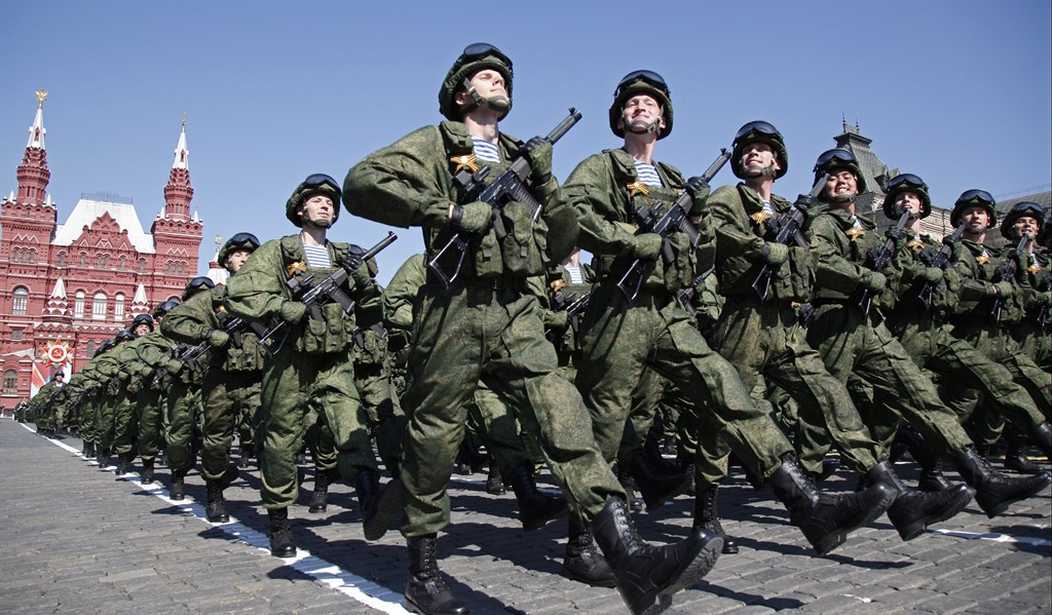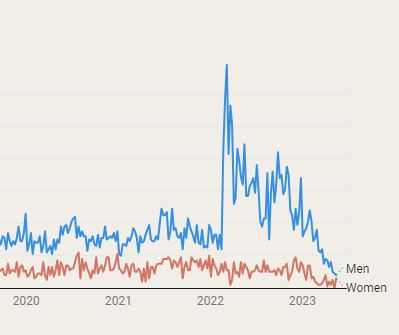Top News
New estimate of Russian dead and wounded after 15 months of war

A joint investigation carried out by two media organizations and a professor at a German university has offered what may be the most accurate estimate yet of the number of Russians killed and injured in the first 15 months of the war in Ukraine.
Analyzing existing reports about published obituaries, mortality data from the Federal State Statistics Service, and extensive records from the National Probate Registry, we estimate that between 40,000 and 55,000 Russian men under the age of 50 died fighting in Ukraine by May 27, 2023. When factoring in the number of men wounded so seriously that they did not return to military service, Russia’s total casualty count rises to at least 125,000 soldiers, based on our calculations. (This figure does not include missing or captured soldiers or Ukrainian nationals fighting with Russian proxy forces based in Donetsk and Luhansk.)
Direct information on these figures is impossible to get because the Russian government has classified it. Even mentioning the death of a soldier online can result in prosecution. Still the media outlets tracked reported deaths the best they could using public information and came up with a total of just under 27,000 deaths. However, the current investigation came up with a clever workaround.
Journalists at Meduza and Mediazona obtained access to a restricted but non-classified database of inheritance cases, and we compared trends in these data to those evident in both publicly available demographics and previous reporting on published obituaries. The records we received include more than 11 million individual cases since 2014, and each inheritance claim shows the deceased person’s full name, the dates of birth and death, the date when the probate case was opened, and other information. The records here are not comprehensive, but the large sample size makes the data representative, which is what matters for this analysis. The cases included in the database were opened between 2014 and May 2023.
Of course not everyone who dies leaves behind property. In fact it’s mostly older people who have property to leave behind. Younger people, like those mostly likely to be Russian soldiers, only left property after death a little more than half the time. By carefully working through all these numbers, they were able to come up with and estimate that looks like this graph below. The green line is the death estimate based on public sources. The purple line is the excess mortality based on probate data.
Another graph shows the spike in probate cases among men aged 20-24 compared to women. As you can see the number of men dying spikes suddenly in early 2022 as the war began while the number of women dying remains flat.

Add all of that up and you get the 47,000 figure mentioned above. Finding the number of injured troops involved looking at a different database.
To count seriously wounded soldiers, we analyzed published Russian treasury records cataloging compensation payments to the families of men either killed in the military or wounded so badly that they were discharged. By removing killed soldiers from this data, we were able to estimate the number of seriously injured soldiers…
Running these numbers, we are left with a wounded-to-killed ratio among Russian soldiers that fluctuates between 1.57:1 and 2.84:1. Averaged out, this yields a total casualty count of at least 125,000 men.
Again, that 125,000 figures is total casualties including deaths. The error bars on that estimate of seriously wounded soldiers appears to be pretty large but this is the middle of the range.
Russia started the war with around 190,000 soldiers along the border with Ukraine. It later announced a mobilization which conscripted another 300,000 men. That means that out of nearly half a million men about 1/4 are either dead or too seriously injured to fight. That still leaves a lot of soldiers but I’ve read estimates from US military experts who say that losses of this magnitude create a serious problem for the effectiveness and morale of the remaining forces. Presumably these losses aren’t evenly distributed. Soldiers fighting at the front are more heavily impacted then those in support roles. So if these figures are accurate these are pretty dramatic losses. It’s no wonder Russia’s army has been more notable for its retreats than for its successes.
Read the full article here


















